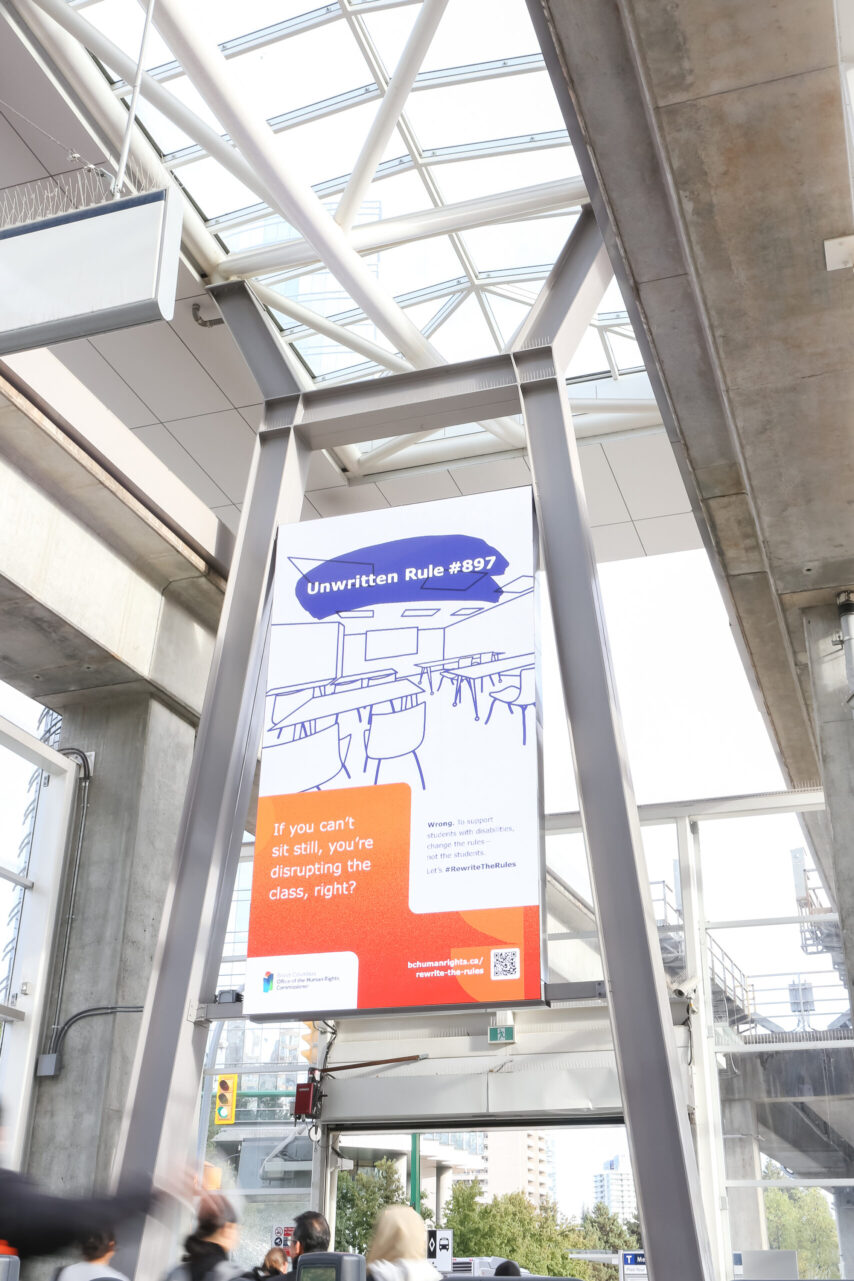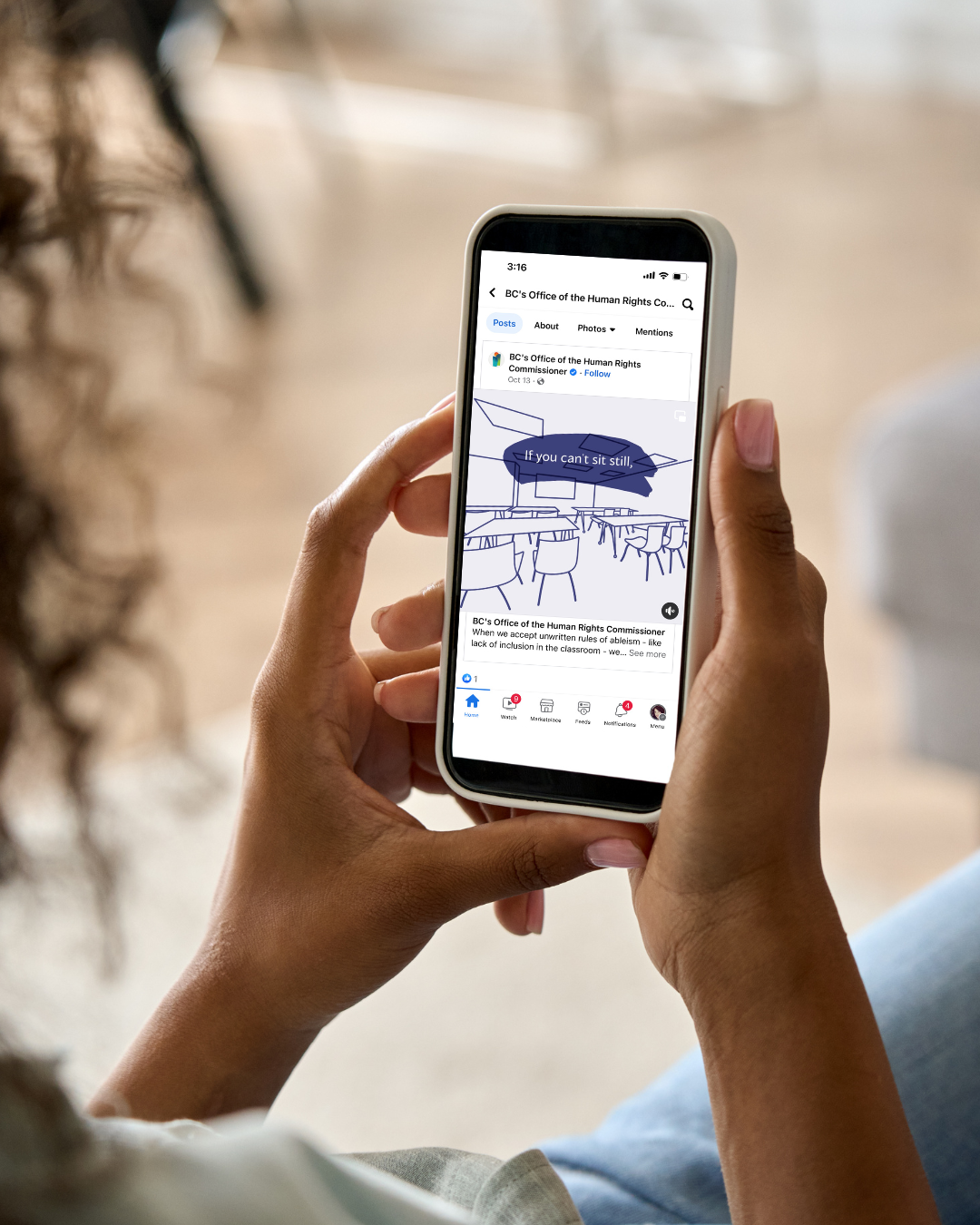Ultimately, this campaign was a win-win-win. Both the Commissioner’s Office and the Community Review Committee reported a sense of deep satisfaction in the process, deliverables and outcomes. Our team learned a great deal about accessibility and ableism, improving our work as consultants and allies. But most importantly, response to the campaign —both online and in-person—demonstrated we had successfully achieved our objectives of raising awareness about ableism, sparking a dialogue about it, and inspiring self-reflection and action.
In the words of Karen Mason, Executive Director of the Third Space Society: “It was a privilege to [help] brainstorm, develop, and execute this public awareness campaign on the important, but too-often forgotten, issue of ableism. I hope this campaign sparks conversation, and action, both in our community and across B.C.” The data tell us it did.







